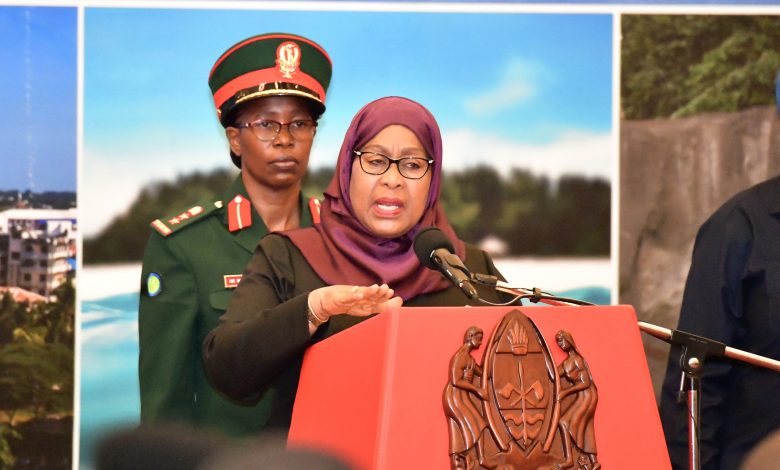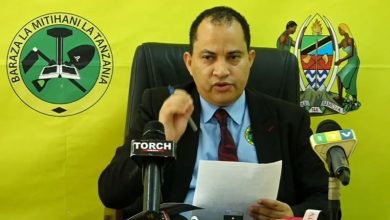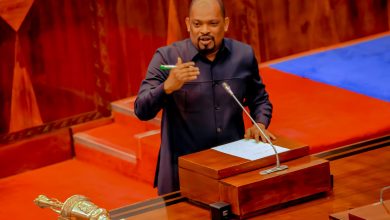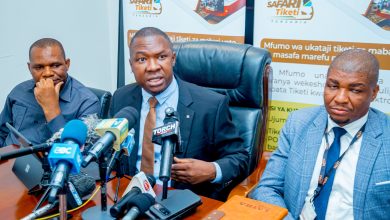CENSUS DAY: Make it count

PRESIDENT Samia Suluhu Hassan on Monday addressed the nation, emphasising the importance of the public enmasse participating in the National Population and Housing Census (PHC) taking place today.
In the course, she dedicated today to be a public holiday to enable people to remain at home in efforts to make the exercise run smoothly for the census enumerators and citizens.
In the exercise, Tanzanians from all walks of life and all foreigners who slept in the country tonight are set to be counted starting today as the country conducts its sixth PHC that is slated to last for at least one week, because of the geographical location of some areas.
President Samia said the head count is crucial in strategising the country’s development and for a fair distribution of resources.
Elaborating, she noted that the exercise is more than just a head count, adding that it provides a snapshot of Tanzania – how many people are living in the country by age, sex and geographical location – and importantly how they are living, as well as other key socioeconomic characteristics.
She said the PHC remains the primary source of data for the government use– both at the national and local level and informs on development policies, plans, programmes and determines resources’ allocations.
The president said data collected also plays a prominent role in providing the demographic surveillance necessary for monitoring and evaluation of the Sustainable Development Goals, which place the highest priority on leaving no one behind.
The Head of State also urged Tanzanians to ensure they respond effectively to all the questionnaires to be presented by the census clerks, since the information to be obtained will be used in planning for national development.
“The preliminary results from the census will be released in October this year,” she said, noting that the information to be collected during the census will be confidential and used as per the intended purpose only.
President insisted that the government is conducting scientific counts for the sake of acquiring accurate data that fits in planning for development.
She also asked all people who will not be reached out today, to ensure they leave their details at places they slept on the night of the day of census for their information to be collected by census clerks.
She said census clerks have already reported to their respective designated areas of enumerations, ready for the crucial exercise.
Unlike the previous counts that were being conducted in the last Sunday of August, this year’s exercise is set for Tuesday to enable everyone in the country to be counted.
Records have it that the previous census was held in the country even before independence. According to President Samia, in Tanganyika the counts were also done in 1913, 1921, 1931, 1948 and 1975.
During the last PHC which was conducted in the year 2012, Tanzania had a population of 44.9 million people, up from 12.3 million people, who were recorded during the first census which was conducted in 1967.
The figure for 2012 included 43.6 million people in Tanzania Mainland and 1.3 million people in Zanzibar. Further projections by National Bureau of Statistics (NBS) in 2017 showed the number had climbed to 51.6 million people out of whom 25.1 million people were men, while 26.5 million people were women.
Prime Minister Kassim Majaliwa, who is the Co-chairperson of the National Committee for National Population and Housing Census has expressed optimism that the decision by President Samia to allow Tanzanians to stay at home today will enable the exercise to be smoothly undertaken as it was planned.
He said that 99 per cent of the population was informed of the forthcoming exercise as of last week compared to 96 per cent in June, this year.
On his part, Co-chair of the committee Zanzibar’s Second Vice-President Hemed Suleiman Abdulla commended the private sectors’ contributions to the nationwide exercise that opens today.
In a related development, the President and Chairman of the Revolutionary Council of Zanzibar, Dr Hussein Mwinyi, has urged Zanzibaris to actively participate in the PHC, which starts today.
Dr Mwinyi made the call yesterday during an occasion to receive post-code and residential address at Migombani in Urban West.
The exercise will be conducted by NBS in Tanzania Mainland in collaboration with the Office of the Chief Government Statistician (OCGS) in Zanzibar.
With an annual population growth rate of 2.92 per cent, based on PHC 2012 projections, the population of Tanzania is expected to reach over 63 million people this year.
During the second PHC which was conducted in the year 1978, the population stood at 17.5 million people with an average annual growth rate of 3.25 per cent for both Tanzania Mainland and Zanzibar, according to data availed by NBS.
In the third PHC which took place in 1988, the population grew to 23.095 million people at an average annual growth rate of 2.81 per cent. The number of Tanzanians grew to 34.6 million people as of 2002.
Projections by NBS show that Tanzania’s population growth rate will decrease from 3.1 per cent in 2013 to 2.8 per cent in 2035.
However, even with the decrease in annual growth rate, the population of Tanzania is set to increase from 45 million, which was projected in 2013 to 86.8 million people by 2035.
According to data by the President’s Office (Regional Administration and Local Government), the PHC will cover 4,263 streets and 12,319 villages in addition to 3,956 wards and 64,384 hamlets across the country.
Just like the previous census, which is conducted after every ten years, the aim of the PHC this year is to provide a clearer snapshot of the country’s demographics and living conditions.
Population censuses are conducted to enable the country to have data of its people. The data provide essential information on the population’s spatial distribution, age and sex structure, and other key social and economic characteristics.
For the first time this year, data will be collected digitally on devices such as tablets instead of papers, which authorities say will ensure greater privacy and faster processing.
Censuses are among the most important sources of demographic and socio-economic data in the country for preparation, monitoring and evaluation of social and economic development policies and programmes such as the Tanzania Development Vision 2025.
Likewise, census data with other information from administrative sources and surveys are of paramount importance in evaluating and monitoring international development programmes like Sustainable Development Goals (SDGs) 2030 and Africa Agenda of 2063.





